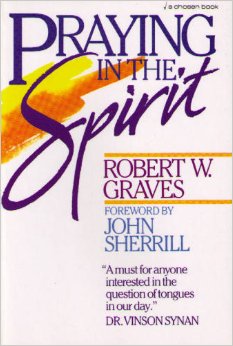Praying in the Spirit: Just What Is the Nature of the Prayer Language?
The fourth chapter of the Praying in the Spirit Series.

Robert W. Graves wrote Praying in the Spirit (Chosen Books) in 1987, when it received great reviews from a number of Pentecostal/charismatic scholars and leaders including John Sherrill, Dr. Vinson Synan, Dr. Gordon Fee, Dr. William Menzies, Dr. Howard Ervin, Dr. Walter Martin, and Dr. Stanley Horton. It is the great privilege of the Pneuma Review to republish it here.
I was in a meeting recently where a man began to offer a prophetic word, but before he finished a woman interrupted him with a message in tongues. It was obvious for several reasons that she was out of order: (1) She interrupted the speaker; (2) she disrupted the service; (3) her utterance in tongues was not interpreted; and (4) her utterance was more in the form of an emotional outburst than a clear, distinct pronunciation of syllables.
It is the last of these reasons that forms the subject of this chapter. What exactly is the nature of the prayer language? Is it an emotional or ecstatic utterance beyond the speaker’s control? Is it a language or is it gibberish? If it is a language, must it be an actual foreign language?
Throughout 1 Corinthians 14 the King James translators qualified the word tongues by prefacing it with the word unknown, which does not occur in the Greek. Anti-Pentecostals, who are quick to point out this insertion, believe that “tongues” are the divinely imparted gift of speaking a foreign language without having learned it; that the gift of tongues was not unknown “gibberish,” but rather a human language known somewhere in the world. Others have interpreted this to mean that the King James translators probably meant the language was unknown to the one speaking it, and may have been known somewhere in the world or may not.
The believer does not wait until his emotions are whipped into a frenzy before praising God with his heart language. He speaks quietly or reverently or joyfully just as he does with every expression of prayer and praise, and the words come every bit as naturally.


